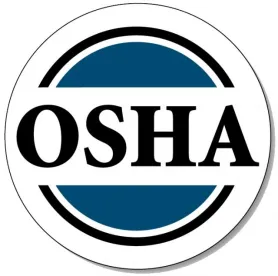On November 19, 2020, the California Occupational Safety and Health Standards Board voted and approved an emergency COVID-19 regulation governing employers and workplaces. That regulation is scheduled for adoption and implementation on November 30, 2020. Below are answers to some frequently asked questions that employers have expressed about the new emergency regulation.
1. The regulation states that it is temporary. How long will the regulation be in effect?
The regulation is initially in effect for 180 days. The regulation can be renewed two additional times for 90 days each. The Standards Board is scheduling California Division of Occupational Safety and Health (Cal/OSHA) Advisory Committee meetings to hear more from employers and employees and possibly make some minor adjustments to the regulation, but any changes are not likely in the next 60 to 90 days. This regulation is likely to be in effect through the critical periods employers are facing with COVID-19.
2. Does the new emergency regulation permit employers to allow employees to self-screen prior to entering a facility?
Yes. Employers may want to continue to document their screening policies and procedures as well as how employees have been trained to perform the COVID-19 self-screen.
3. Do the regulations require that customers wear face coverings?
Yes. Employers that have customers within six feet of their employees will be required to include face coverings as part of their programs to protect the employees.
4. Does employer-provided testing have to be at the work facility location or could it be at a pharmacy or public health facility?
Employers are not required to provide COVID-19 tests at their facilities to meet the definition of employer-provided tests. Employers may want to remember that the new regulations require them to compensate employees for their time in taking the test and any mileage to drive to the testing location.
5. Are the COVID-19 reporting requirements retroactive such that employers must report to the local health department that employees tested positive extending back to a precise date?
No. No part of this new regulation is retroactive.
6. Does employee housing include motels and hotels when traveling?
It does not appear so. The regulation’s definitions are not particularly clear on this issue, however, the requirements would not be feasible nor practicable at those locations. On the other hand, locations such as ranch housing, agricultural housing and dorms, and similar farm housing situations do fall under this regulation and the physical distancing and sanitation requirements are very specific and likely to require substantial changes to these types of housing situations.
7. Does the regulation require employees to wear face coverings at all times when indoors, specifically, do the regulations require that employees wear face coverings while in an office setting with multiple cubicles in a room?
Yes. According to the regulations, employers must provide face coverings, and there are only a few exceptions to wearing face coverings in the workplace.
8. How should employers handle maintaining medical records?
For many employers, this is a new area of recordkeeping and quite cumbersome. Employers may want to maintain employee COVID-19 tests separately from general personnel files and protect them from inadvertent sharing or release. Employers may also want to ensure that they have written protocols for protecting the COVID-19 testing records.
9. We are in a low-hazard industry and do not have to keep an OSHA 300 log. Do we now have to start keeping one with COVID-19 illnesses?
No. The regulation does not change the exemptions for employers that are not required to keep OSHA 300 logs because of their NAICS codes and industries.
10. Are employers that have already been conducting COVID-19 training required under this new regulation to host an all new training program?
Training that employers have already completed can be part of meeting the regulation’s COVID-19 training requirements as long as the trainings meet the requirements of California Labor Code Section 3205(c)(5). According to the regulations, trainings must include company policies and procedures related to COVID-19, COVID-19 benefits available to employees, symptoms of and how COVID-19 is spread, physical distancing, face coverings, hand washing, and the importance of not coming to work when symptomatic.




 />i
/>i

